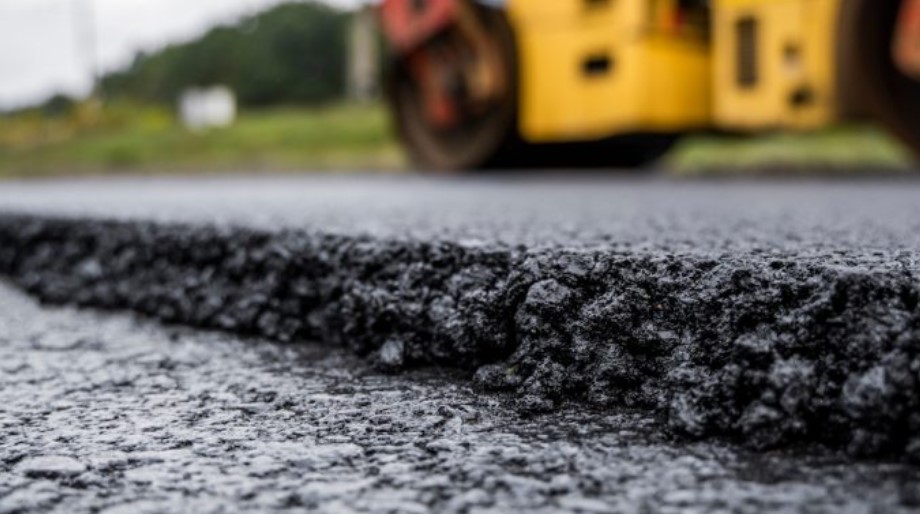
When you think of road construction, your mind probably jumps right to gravel, dirt, or some other natural surface. But even cities with paved roads may not be ready for the future. To prepare for the growing demand for online grocery shopping and fuel delivery services without bulky trucks clogging city streets, cities are upgrading their roads with asphalt. Asphalt paving is becoming more common as a way to repair and upgrade existing roads. Asphalt can stand up to heavy use and rain better than most other materials – so it’s great for cities where frequent downpours or heavy snowfall can erode dirt or gravel roads. Read on to learn about the pros and cons of asphalt paving.
What is Asphalt Paving?
Asphalt paving is a surface material used to create roads, parking lots, and other pedestrian walkways. Some asphalt pavement is made of crushed stone, but most use a mixture of asphalt binder and aggregate (aggregate is gravel, sand, or crushed stone). Asphalt binder is a sticky substance that binds the gravel together. Aggregate is added to provide texture and strength. When combined, these ingredients create a strong, durable surface that can stand up to heavy use. Because asphalt binder is sticky, it can trap water, which can lead to puddles and slippery conditions. This makes it important to maintain the surface so it does not become too soft or muddy.
Asphalt paving can be made from a variety of materials. Some asphalt pavements are made with asphalt concrete. This type of pavement typically consists of one layer of crushed stone and one layer of asphalt binder. The stone provides texture while the asphalt binder sets it all in place. Other types of asphalt paving include asphalt shingle and chip seal pavement. Each type of pavement has its own set of pros and cons. For example, chip seal paving tends to be more durable than shingle pavement because it has more aggregate. However
Pros of Asphalt Paving
Asphalt paving is a good choice for a number of reasons. For one thing, it’s durable and long-lasting. Asphalt can withstand the wear and tear that comes with regular use, so it lasts longer than other types of pavement. It’s also more affordable than other options, so if you want to make a large impact on your property, asphalt is a good choice.
It’s important to note that asphalt isn’t appropriate for every site. It’s best suited for flat, level areas. If you have a slope or uneven ground, it’s best to look into other options first.
Asphalt is also easy to maintain once it’s in place. All you have to do is sweep away dirt and debris from time to time. You can also add some sealant between the cracks to keep water out and preserve the integrity of the surface. When all is said and done, asphalt paving can provide many great benefits all while being an affordable option for homeowners looking to make their property look great!
Cons of Asphalt Paving
Asphalt is a very inexpensive and practical paving material, but there are some things you should be aware of before putting it down in your driveway. First, asphalt can be hot in the summer and cold in the winter. It also tends to absorb more water than other materials, so it can become soggy and slippery over time. Because of these factors, you should always allow plenty of time for asphalt to dry before driving on it. You should also keep an eye out for cracks or holes in your asphalt driveway. If you see any of these problems, you should have your asphalt paved immediately to prevent potholes from forming.
There are many different benefits to choosing asphalt for your driveway, including its affordability and durability. However, asphalt is not without its drawbacks. If you don’t take proper care of your driveway, it could end up looking dirty and uneven over time. As well, it can be difficult to clean and de-ice once the winter months roll around.
Is Asphalt Paving Right for Your City?
In some parts of the country, road infrastructure is aging and in need of replacement. Asphalt paving is one solution to this problem.
Asphalt paving can be used for a wide range of applications, including new construction and resurfacing of roads. It is popular because it is durable and resistant to high heat and cold temperatures. However, there are several factors to consider before choosing asphalt as your paving material.
One important factor to consider is the quality of your asphalt. This can vary greatly depending on where you live and how it was produced. For example, if your city has a higher demand for asphalt, it will often be produced at a higher quality than if it’s not needed as much. To ensure that you get the best quality possible, make sure that you meet with a reputable contractor who can inspect the equipment and materials used in production.
Another factor to consider is the type of asphalt that you use. The right kind of asphalt can increase the lifespan of your road significantly. Some types are more heat resistant than others. If you want to lengthen your road’s lifespan, make sure to choose one that matches your climate conditions.
